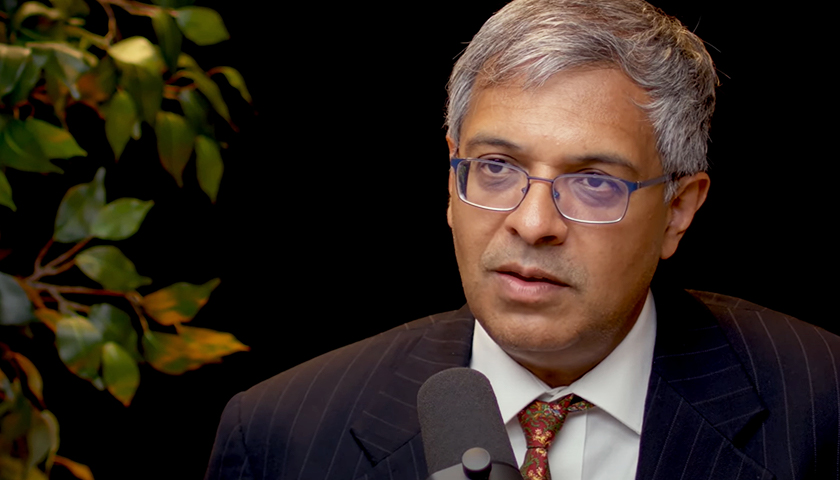by Eric Brakey
As one-size-fits-all COVID vaccine mandates sweep government, academia, and corporate America, new data are emerging that undermine the public health justifications for these policies. Studies from multiple countries now indicate that vaccination alone is less effective than the acquired immunity many already possess and unable to prevent transmission in the medium-to-long term.
Since the pandemic began, more than 100 million Americans have recovered from the virus. Many are workers deemed “essential” just last year. While the government paid others to sit at home, essential workers were required to continue working, exposing themselves to the coronavirus in a pre-vaccine world.
One of these individuals is my friend, Adam, an occupational therapist and rehabilitation director treating patients at a small nursing home in Aroostook County, Maine. He never worked from home. His patients needed him there in person. Like many healthcare workers on the frontlines, Adam was infected by the coronavirus while on the job, stayed home until he tested negative, and then went back to work.
As far as COVID is concerned, Adam is among the safest people in America to be around. Multiple studies (including one out of Israel that has received global attention) now indicate that those who have recovered from infection possess a natural immunity more robust than what current vaccines provide. Further, three epidemiologists at Harvard, Oxford, and Stanford have specifically recommended in the Great Barrington Declaration (now co-signed by nearly 15,000 medical and public health scientists, as well as 44,000 medical practitioners) that “nursing homes should use staff with acquired immunity” to protect patients.
So why have both President Joe Biden and Governor Janet Mills (D-ME) issued mandates threatening Medicare and Medicaid reimbursements to all healthcare providers unless they fire people like Adam? Mandates that make no exception for those with demonstrated acquired immunity make little sense for public health.
Additionally, in light of recent studies and documented “breakthrough infections,” the public health basis for mandatory vaccination is increasingly shaky for even those without any degree of natural immunity.
During my four years as Senate Chairman for Maine’s Health and Human Services Committee, mandatory vaccination policies in schools were a regular source of heated debate. The arguments for robust enforcement often rested on the need for “herd immunity”—the point at which one person transmits a virus to one or fewer people due to pre-existing immunity within a population.
Before the advent of vaccination, herd immunity relied on the development of natural immunity through widespread exposure to a virus. Since vaccination became common, many viruses once plaguing society are now virtually eradicated. To maintain herd immunity for subsequent generations and prevent the return of our old viral enemies, widespread vaccination is widely regarded as essential. For COVID vaccination, however, this does not appear to be the case.
According to Dr. Jay Bhattacharya, a professor of medicine who studies epidemiology at Stanford University, recent studies indicate that the mRNA vaccines produced by Moderna and Pfizer do not contribute to herd immunity.
Just out: A wide-ranging conversation between me and @ThomasEWoods on the southern summer case spike, herd immunity, what the vax can and can't do, and why mandates are bad for public health.https://t.co/76b8lTAkJV
— Jay Bhattacharya (@DrJBhattacharya) September 19, 2021
During a September 2021 interview with New York Times best-selling author Tom Woods, Bhattacharya, one of the authors of the Great Barrington Declaration, cited a study from Qatar with important findings on vaccine effectiveness. While vaccinated individuals were up to 95 percent safer from severe disease six months after vaccination, protection against infection and transmission was fleeting. Immunity began to diminish after five weeks. At 20 weeks, the vaccinated were as likely to become infected and transmit the virus as those unvaccinated.
This failure to confer a lasting immunity that protects the public does not negate the demonstrated positive effects for the individual. Battacharya hails the vaccine as “a wonderful achievement” that has “protected so many people from severe outcomes of the disease.” He credits the vaccine with aiding his own recovery from a COVID infection and strongly recommends it to others, especially the “older and vulnerable.”
“It’s better to have the vaccines first and then get the disease than the other way around,” he says.
At the same time, Bhattacharya concludes that, without contributing to herd immunity, COVID vaccination is a matter of personal health, not public health. As the benefits rest primarily with the individual, not society, government officials have no greater moral authority to prescribe vaccination than they do to prescribe chemotherapy. These are decisions for the individual to decide in consultation with their own physician.
Unlike pre-existing requirements in schools for traditional vaccinations, existing data undermines herd immunity justifications for universal COVID vaccination mandates. Further, these mandates push many with robust acquired immunity out of the workplace and society to the detriment of public health, increasing the likelihood of transmission to the vulnerable.
Mandatory COVID vaccination oversteps the bounds of public health, violating long-standing Western principles of bodily autonomy and individual rights. Lacking even the clear positive externalities often used to justify past vaccination requirements, these mandates should be opposed at all levels of policymaking.
– – –
Eric Brakey is the senior spokesperson for Young Americans for Liberty. As a state senator from 2014 to 2018, Brakey served as senate chairman for the Maine Health and Human Services Committee. He is a contributor to the Foundation for Economic Education.
Photo “Dr. Jay Bhattacharya” by ZDoggMD.





